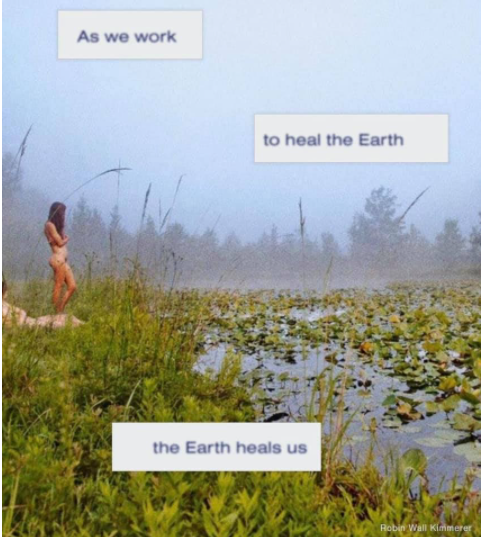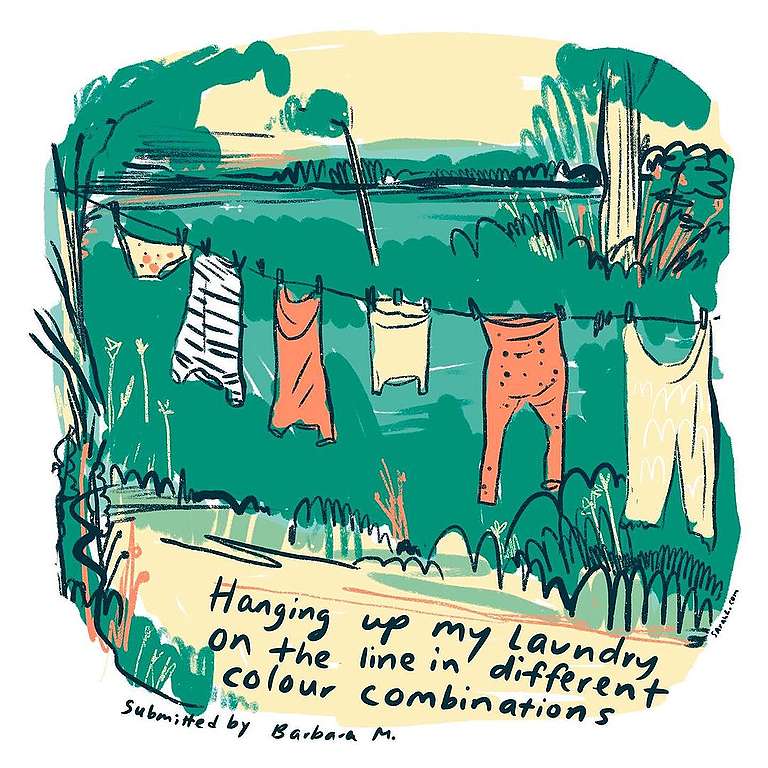How to manage eco-anxiety: Advice from a climate activist

“The moon is following us home again!” My daughter exclaimed as she always does when the line between day and night becomes blurry and we begin to make our way home from the park in the evening. “But why is it red?”
Her question hit me with the weight of the realization that with the moon, the climate crisis, too, is following us home. I explained that there were wildfires burning in Ontario and the smoke was blowing particulate matter through the atmosphere, turning the moon a red hue. “Will they come here?” she inquired, referring to the fires. “No” I said, (not yet, my inner voice added).

This was on the day that Toronto’s air quality clocked in at second worst of any city in the world. And it was one of those moments when the climate crisis crystalized in my mind as an overwhelming reality – the extent of the damage, the monumental task in front of us. The fact that others living in more vulnerable circumstances around the world have already been dealing with the impacts for years – and despite that knowledge, we’ve failed to act with the urgency the situation requires.

As our newsfeeds fill with videos and images of wildfires raging out-of-control and floods that threaten to wipe towns off the map; as news headlines turn dark with stories of animals cooking in place and cherries turning to raisins from record-breaking heat; as more people are directly exposed to the impacts of the crisis – the sense that the task at hand is overwhelming and impossible can lead to feelings of climate anxiety, or ‘Eco-Anxiety.’
These feelings are normal. We’re being confronted with horrible images, videos and stories in our newsfeeds, events which are increasingly being directly tied to climate change through more accurate climate science. More of us are also directly experiencing the impacts first hand. It’s natural to feel grief, despair, anxiety, depression and anger when faced with such suffering – and the infuriating inadequate responses to such events from those in power.
As someone who lives in the flow of information online working as a Digital Campaigner for Greenpeace Canada, I inevitably struggle with these feelings. But over the years I also feel like I’ve learned a thing or two about managing them, moving through them and coming out the other side, transmuting eco-anxiety into action. I’m sharing some of this here in the hopes it might help if you, like me, struggle with feelings of doom in a world that feels increasingly destabilized.
1. Get outside
When I find myself in a pit of climate doom, I make a conscious effort to disconnect from the screen world and spend time in nature. I go for walks, I sit in parks, I swim, I stop by some of the butterfly way projects that are near me and commune with the bees and the butterflies. There is nothing like the calming effects of the natural world – and spending time in it is a reminder that we are deeply intertwined with this world. We are not apart from nature, but a part of it. There is something incredibly healing (and empowering) when you let yourself sit in that knowledge.
Research has also confirmed what we all know intuitively: spending time in nature has positive mental health benefits. This is something more people have discovered since covid lockdowns, and all the more reason that ensuring natural spaces are available to all needs to be a priority for a green and just recovery.

2. Cook, clean, garden
Being a full time digital activist means I live in the flow of world events online – what these days feels increasingly more like a rapid raging river with a rip tide. The trending hashtags, the photos and videos of all “climate-hell-broke-loose” looking more like a dystopian movie, oil companies admitting to covering up climate science to continue turning a profit, politicians giving callous remarks about the suffering of the vulnerable in the midst of a climate crisis, billionaires playing star wars using the money they hoarded destroying the only home we’ve got – and then having the nerve to say they’re giving our children the opportunity to build the future.
It’s important to know what’s going on in the world, but it’s also important to know when you’re coming untethered.
When I feel myself getting lost in the rip tide, I take a break and find activities that ground me again. I do laundry and hang it outside, I cook or bake, I water my garden, I clean my apartment, I read, I play my ukulele.
Find an activity that restores a sense of calm and allows you to find your centre again. This will lead you to being more effective when you’re ready to jump back in. We are not at our best when we’re burned out and scattered; it’s better to take breaks, rest and realign.

3. Tailor your newsfeed to include positive stories…and funny animal videos
Set yourself up to run into the good equally (or more) often than the bad. Being exposed to global disasters and negative news stories all day every day can leave us feeling like there are more problems than solutions. But the solutions, and the people working on them, are out there (for example, this story about a seaweed farm off Cortes Island makes me want to give it all up tomorrow and become a seaweed gardener 🤩). Start looking for the groups and the projects that inspire you, and follow along with their work. Make sure you’re taking note of the wins as often as you’re keeping up with what more needs to be done (for instance, in the last couple of months, people power managed to stop not one, but two pipelines – GNL Quebec and Goldboro – and also saved a wetland from demolition). They’ll continue to try to pave paradise, and we’ll continue to stand in their way.
Here’s a few places to start:
- @brenna_quinlan and @sarah_lazarovic on Instagram (Sarah also writes this inspiring newsletter)
- @futureearth on Instagram
- @gogreensavegreen on instagram
- @get.waste.ed on instagram
- A Positive Climate podcast
- Upstream Podcast
And don’t forget to expose yourself to inspiring and/or funny animal videos. These are essential in surviving climate anxiety (I post one every Saturday morning on the Greenpeace Canada social media channels, follow along! Facebook, Twitter, Instagram).
August 2021
GREENPEACE




